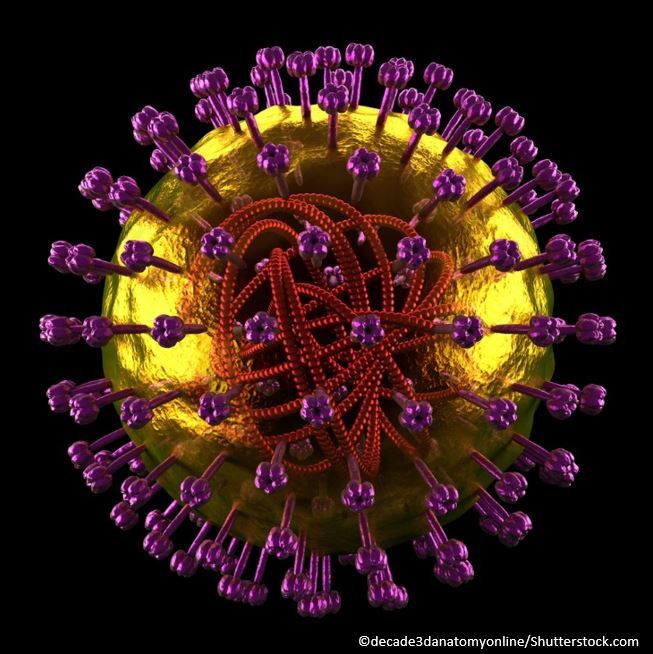- Clinical Technology
- Adult Immunization
- Hepatology
- Pediatric Immunization
- Screening
- Psychiatry
- Allergy
- Women's Health
- Cardiology
- Pediatrics
- Dermatology
- Endocrinology
- Pain Management
- Gastroenterology
- Infectious Disease
- Obesity Medicine
- Rheumatology
- Nephrology
- Neurology
- Pulmonology
The Measles Vaccine: If a Patient Asks, How Would You Answer?
The measles outbreak shows no signs of slowing. Are you prepared to answer vaccination questions from patients and parents? This 5-question quiz may help.


Note: This is an update to the original article that appeared on Patient Care in February.
A county in New York state just declared a state of emergency in response to the ongoing measles outbreak, citing 150 confirmed cases since the fall. Measures include a 30-day ban on unvaccinated minors (<18 years) from public places. The move is intended to protect the most vulnerable citizens--infants, the elderly, ill and immunocompromised persons, and those who cannot be vaccinated against the dissease.
Measles continues to make news, and you may be getting some questions in your office, so let's see how you would respond.
Question 1. What is the efficacy after a single MMR shot and then after a second?
A. 95% and 100%
B. 95% and 99%
C. 93% and 97%
D. 91% and 96%
Please click here for answer and next question.
The correct answer is: C. 93% and 97% (per CDC data)
Given that measles is one of the most highly contagious viruses that infect humans (90% of susceptible, exposed people will come down with the disease) the percentage of the population that needs to be vaccinated to provide herd immunity is very high, in the 93-95% range according to the World Health Organization. Clark County in the state of Washington is the epicenter of the current outbreak. Per county data, only 77% of school children are fully vaccinated.
Question 2. Infants are at high risk of serious complications and death with the measles. Why do we not vaccinate infants younger than age 12 months?A. The immature immune system in infants younger than age 12 months does not respond well to the vaccine.
B. Enough maternal antibody transmitted before birth can interfere with vaccine virus replication, resulting in vaccine failure.
C. Breast feeding can result in the transfer of enough maternal antibody to interfere with the immune response.
D. Babies younger than age 12 months do respond to the vaccine, but the side effect profile prohibits the vaccine's use in the population.
Please click here for answer and next question.
The correct answer is B. Enough maternal antibody transmitted before birth can interfere with vaccine virus replication, resulting in vaccine failure.
It is important to remember that receipt of blood (except for washed RBC transfusion) or gamma globulin in an infant may mean you need to delay the vaccine's use at 12 months of age. For example, an 11-month-old infant treated with 2 gm/kg of IGIV cannot be given MMR vaccination until age 22- months.
Question 3. Which of the following are risks mentioned in the vaccine information statement (VIS) sheet that should be given to every parent of a child receiving the MMR vaccine? A. The vaccine can cause thrombocytopenia.
B. Rarely, deafness can result.
C. Seizures can occur, usually with fever.
D. All of the above are mentioned.
Please click here for answer and next question.
The correct answer is D. All of these risks are mentioned.
he risk of idiopathic thrombocytopenia (option A) is biologically very plausible since both measles and rubella have been shown to cause it. The extra risk from MMR vaccine is perhaps 1 in 30,000. Deafness (option B) has been seen after MMR vaccination, but no cause and effect has been proven. Sporadic cases of sudden deafness have also been described in children and adults with no preceding vaccination of any kind, so it is possible the cases of deafness following the MMR vaccine administration may have simply been part of this normal, poorly understood background rate of sudden deafness. Most seizures related to MMR vaccination (option C) are simple febrile seizures.
Question 4. A mom tells you she will be traveling to Italy with her 7-month-old infant for 2 weeks. She said she read that Europe had 41,000 cases of measles last year. She asks, “Can you give my baby the MMR vaccine?” You tell her:A. … (reassuringly), that it is not needed since most of the cases were in the Ukraine and eastern European countries and that Italy, France, and Britain are safe.
B. … that the CDC says the MMR should not be given to children younger than age 9 months since it may lead to vaccine interference when a repeat dose is given later.
C. … that you can give the MMR today and a 2nd dose will be needed between ages 4 and 5.
D. … that you can give the MMR today but two more doses will still be needed.
Please click here for answer and next question.
The correct answer is D. You tell mom that you can give the MMR today but two more doses will still be needed.
More than 20,000 of Europe’s measles cases last year were in the Ukraine, but both France and Italy had more than 2,500 cases and Britain more than 900 (option A). The MMR can be given as young as 6 months of age (vs option B). If the vaccine is given before 12 months, it may or may not induce an immune response depending upon the amount of maternal antibody remaining in the infant's system. Presumably, if it does not work, then the infant has enough maternal measles antibody to protect him from infection. If the maternal antibody levels are low enough for the vaccine to work, then immunity from the shot should develop. If a child receives an MMR before 12 months of age, one needs to assume it did not work and give the infant two doses after 12 months of age.
Question 5. Your office protocol is to store your MMR and MMRV (Proquad) vaccines in the freezer. Your nurse tells you that one box of each of these vaccines was instead placed in the vaccine refrigerator for 4 hours before moving them to the freezer. You tell her:
A. Discard both the MMR and MMRV. They have to be kept frozen, just the way they are shipped.
B. Nothing needs to be done since both can tolerate 8 hours in a refrigerated environment before re-freezing.
C. Discard the MMRV, but the MMR is fine. It can be stored frozen or refrigerated.
D. Discard the MMR, but the MMRV is fine. It can be stored frozen or refrigerated.
The correct answer is C. Discard the MMRV, but the MMR is fine. It can be stored frozen or refrigerated.
Currently, in the United States, all live varicella vaccines (MMR, MMRV, and the live zoster vaccine Zostavax) must be kept frozen. Shingrix is now the CDC preferred shingles vaccine and is stored in the refrigerator.
Sources
- Schwartz MS. N.Y. suburb declares measles emergency, bars unvaccinated minors from public places. National Public Radio Web site.
https://www.npr.org/2019/03/27/707095754/ny-suburb-declares-measles-emergency-bars-unvaccinated-minors-from-public-places. Accessed March 27, 2019.
- Funk S. Critical immunity thresholds for measles elimination. Centre for the Mathematical Modelling of Infectious Diseases, London School of Hygiene & Tropical Medicine. Presentation Oct 19, 2017. World Health Organization Web site. https://www.who.int/immunization/sage/meetings/2017/october/2._target_immunity_levels_FUNK.pdf. Accessed Feb 12, 2019.
- Measles investigation. Clark County, Washington Public Health Web site. https://www.clark.wa.gov/public-health/measles-investigation. Accessed Feb 12, 2019.
- Measles cases in 2019. CDC Web site. https://www.cdc.gov/measles/cases-outbreaks.html Accessed Feb 12, 2019.
- Vaccine storage chart. American Academy of Pediatrics Web site. https://www.aap.org/en-us/advocacy-and-policy/aap-health-initiatives/immunizations/Practice-Management/Pages/vaccine-storage-chart.aspx. Accessed Feb 12, 2019.
